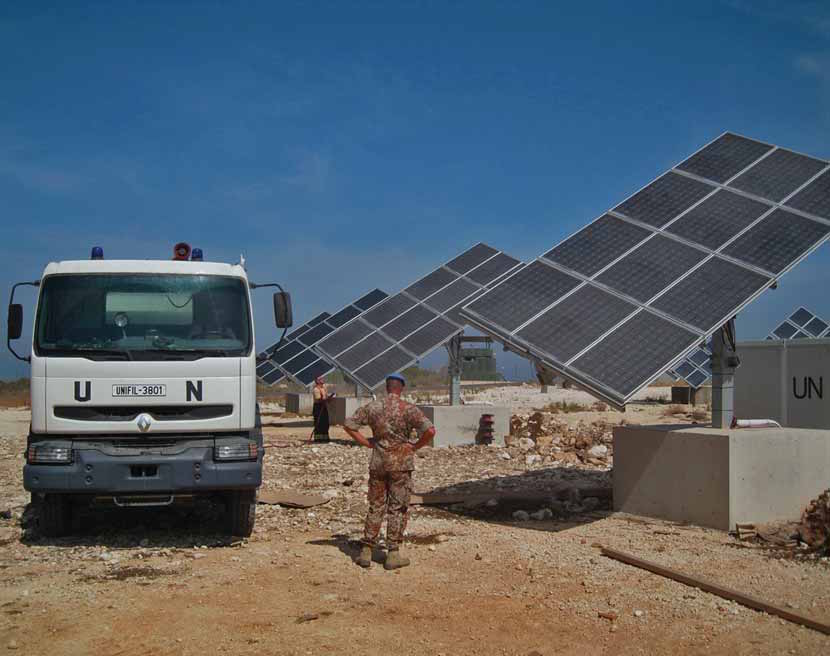NAIROBI | NEW YORK (IDN) – The idea of “greening the blue helmets” has become an accepted need and operational requirement for all UN peacekeeping missions, claims a new report by the United Nations Environment Programme (UNEP) based in Nairobi.
Peacekeeping operations, it says, account for over 56% of the UN system’s total climate footprint as demonstrated by the greenhouse gas emissions inventory undertaken by UN Department of Field Support (DFS) in 2008.
“The nearly 120,000 peacekeepers serving across 16 missions produce over 180 tonnes of solid waste and consume 10 million liters of water on a daily basis.”
By adopting energy efficient practices and technologies, says UNEP, 15-32% energy savings could be achieved, representing USD 50-100 million in fuel costs alone per year. “This is an important consideration in reducing troop exposure to fuel convoy attacks.”
Further, water consumption could be reduced by up to 42% from low-tech measures and waste could be reduced by up to 88%.
The report points out that the UN Peacekeeping missions have the largest environmental footprint in the UN system and offer an important entry point for improved environmental management in the UN.
To address this, UNEP helped the UN Department of Peacekeeping Operations (DPKO) and the UN Department of Field Support develop an environmental policy for UN field missions in 2009 with minimum standards for environmental performance, including on energy and water consumption, as well as waste production.
In 2012, three years after the adoption of the policy, UNEP, DPKO, DFS and the Swedish Defense Research Agency (FOI) partnered to assess the overall level of policy implementation by interviewing ten different peacekeeping missions about the practices adopted and the main challenges, says the report.
They also reviewed how peacekeeping operations could help prevent natural resources from contributing to instability and conflict relapse.
The joint findings were published in the third flagship ECP report “Greening the Blue Helmets: Environment, Natural Resources and UN Peacekeeping Operations”.
The report claims to have raised awareness on the topic and catalyzed a UNEP, DPKO and DFS partnership to implement the recommendations in different peacekeeping missions.
Pilot assessments activities are said to have taken place in Somalia, South Sudan, DR Congo, Central African Republic and Mali. An e-learning programme on natural resources and the environment for peacekeepers was developed and launched by UNEP’s Environmental Cooperation for Peacebuilding (ECP) and UNITAR in 2013.
“The influence of ECP’s work in this sector is also demonstrated through the recent report in June 2015 by the High-level Independent Panel assessing the relevance and effectiveness of UN peace operations,” UNEP says.
The panel recognizes the increased need to minimize environmental impacts of peacekeeping operations, and the importance of implementing the Environmental Policy for UN field missions. UNEP has been requested by the Secretary General to support peacekeeping on the policy review and improve planning of missions. [IDN-InDepthNews – 18 January 2016]
Image: Anthony O’Mullane, UNIFIL (Cover of ‘Greening the Helmets’ by UNEP)

